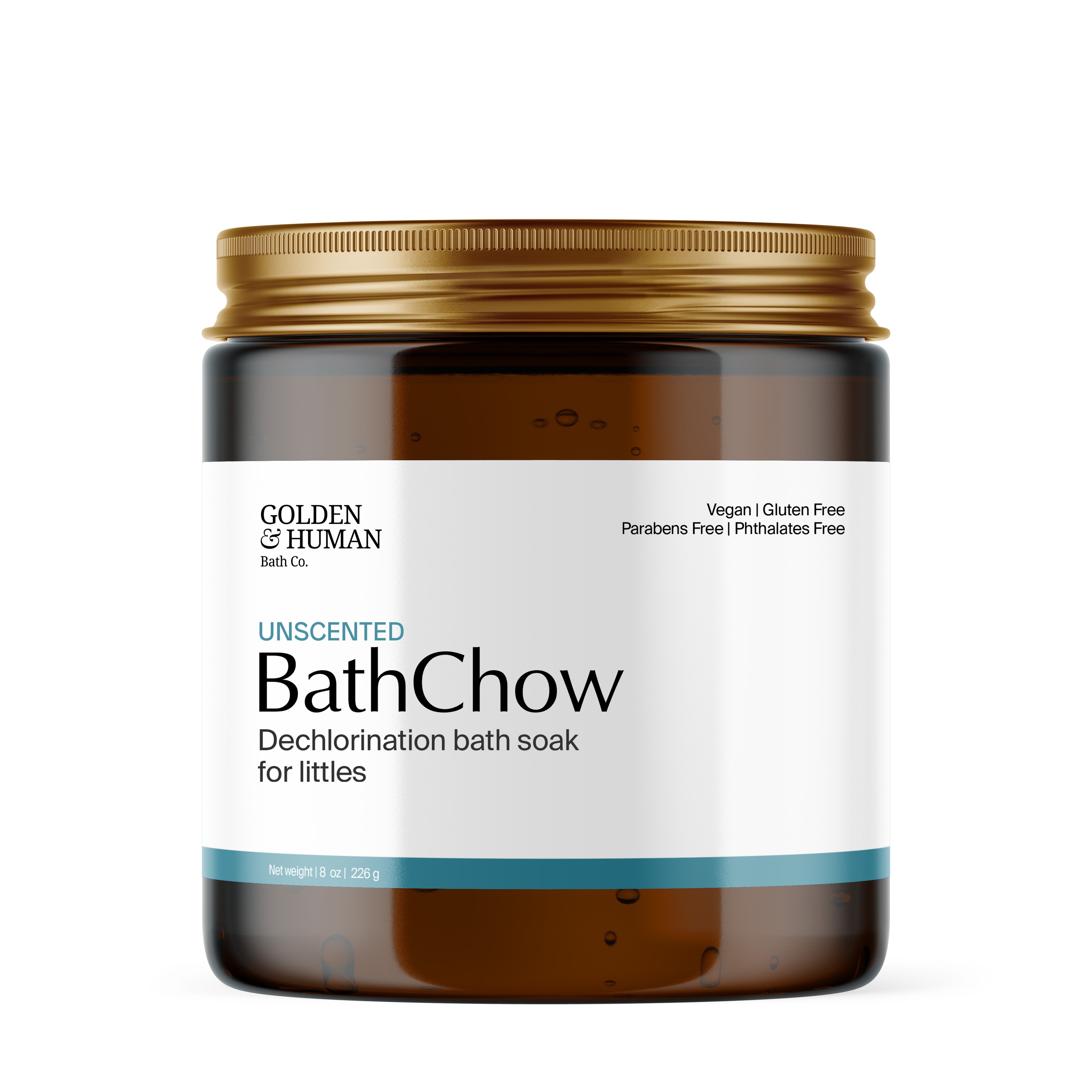FREQUENTLY ASKED QUESTIONS
BathChow FAQ
BathChow is the first and only powdered product on the market designed to safely & effectively neutralize chlorine in your child's bath water. Through our 5 ingredient formula, the chlorine is neutralized moments after hitting the water.
We use only high-quality, clean ingredients. No sulfates, parabens, gluten, phthalates, or toxic fragrances. We use only essential oils for our lavender & sweet orange +vanilla formulas.
So simple! We recommend filling up your bath tub or bathing basin and add 1 or 2 scoops of BathChow. Let it dissolve and work its magic for 3 minutes to neutralize the chlorine in your bath water.
You can add your own favorite bath products after that. Oh, and of course your child!
You can start at your child's first bath! We recommend using our unscented formula when they are under a year old. But of course, always feel free to check with your Pediatrician.
Chlorine FAQ
Chlorine is used as a disinfectant that kills many types of bacteria, viruses and parasites (pathogens) that cause water-borne infections. It is used to make our water safe for the general public, however, there is no benefit to bathing in it.
The skin, our largest organ, acts similar to a sponge during baths, soaking up the water and any chemicals your water may contain. Toxins absorbed in this way skip the body's initial filters, such as the liver, and wind up entering the bloodstream almost immediately. Your child's skin is 20%-30% thinner than adult skin, which allows for quicker absorption and a greater risk for dry/itchy skin.
Chlorine can be harsh on your child's skin & disrupt their skin's natural microbiome, which is designed to protect them from other environmental factors we are exposed to.
Actually, Yes! There have been numerous studies that show the correlation between chlorine and eczema flare-ups, since it can be really drying for the skin.
Take a look at the National Eczema Society's website- they have their own studies/articles with more information.
https://eczema.org/information-and-advice/triggers-for-eczema/
BATH TIME FAQ
Ultimately, this is a personal decision influenced by factors like your location, your baby's skin type (to avoid over-drying), and their daily routine. It may be best to consult with your Pediatrician since every baby is different.
Bath time for a baby should be brief—typically 5 to 10 minutes for newborns and younger babies. Prolonged exposure to water isn’t necessary and can be counterproductive, as babies can lose body heat quickly. Their delicate skin is also more prone to irritation if soaked for too long. Keeping bath time relaxing and calm is key to preventing overstimulation and discomfort.
The ideal temperature for a baby’s bath water is around 98.6°F (37°C), which is close to the body’s natural temperature. This helps prevent the baby from losing body heat too quickly and ensures they won’t get cold during the bath. It’s also crucial that the water isn’t too hot to avoid the risk of scalding. To check the water temperature, use your elbow or the inside of your wrist, as these areas are more sensitive to heat than your hands. If the water feels comfortably warm (but not hot) on these areas, it should be safe for the baby.




